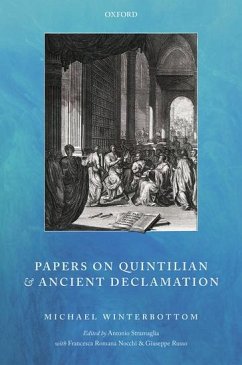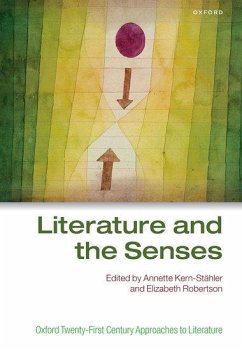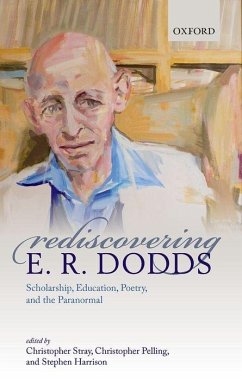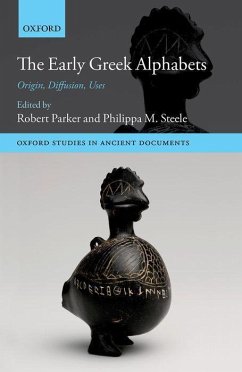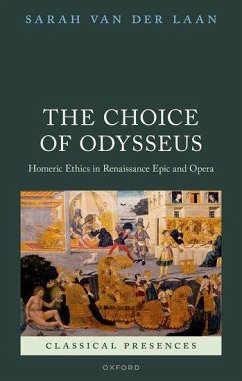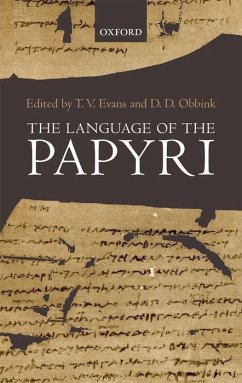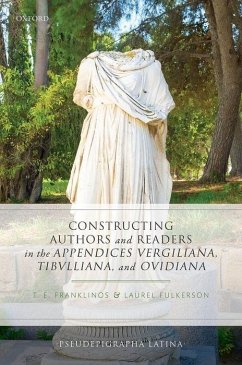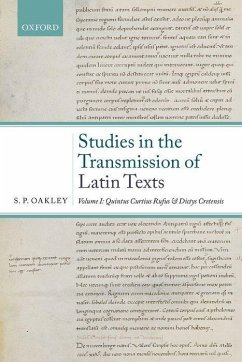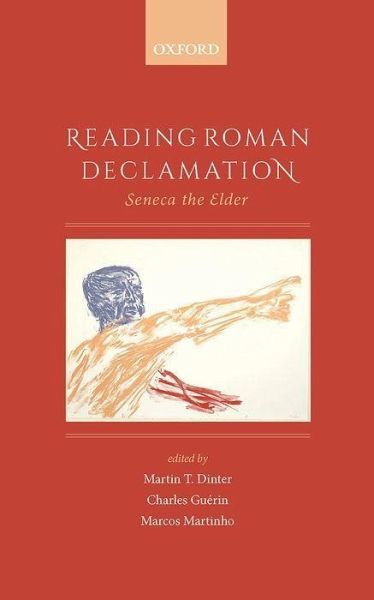
Reading Roman Declamation
Seneca the Elder
Versandkostenfrei!
Versandfertig in 1-2 Wochen
152,99 €
inkl. MwSt.

PAYBACK Punkte
76 °P sammeln!
Situated at the crossroads of rhetoric and fiction, the genre of declamatio offers its practitioners the freedom to experiment with new forms of discourse. This volume places the literariness of Roman declamation into the spotlight by showcasing its theoretical influences, stylistic devices, and generic conventions as related by Seneca the Elder, the author of the Controversiae and Suasoriae, which jointly make up the largest surviving collection of declamatory speeches from antiquity. Authored by an international group of leading scholars of Latin literature and rhetoric, the chapters explore...
Situated at the crossroads of rhetoric and fiction, the genre of declamatio offers its practitioners the freedom to experiment with new forms of discourse. This volume places the literariness of Roman declamation into the spotlight by showcasing its theoretical influences, stylistic devices, and generic conventions as related by Seneca the Elder, the author of the Controversiae and Suasoriae, which jointly make up the largest surviving collection of declamatory speeches from antiquity. Authored by an international group of leading scholars of Latin literature and rhetoric, the chapters explore not only the historical roles of individual declaimers, but also the physical and linguistic techniques upon which they collectively drew. In addition, the 'dark side of declamation' is illuminated by contributions on the competitiveness of the arena and the manipulative potential of declamatory skill and, in keeping with the overall treatment of declamation as a literary phenomenon, a section has also been dedicated to intertextuality. Drawing on thought-provoking analyses of Seneca the Elder's works, the volume highlights the complexity of these texts and maps out, for the first time, the socio-cultural context for their composition, delivery, and reception, as well as providing a comprehensive, innovative, and up-to-date treatment of Roman declamation that will be essential for both students and scholars in the fields of Latin literature, Republican Roman history, and rhetoric.





